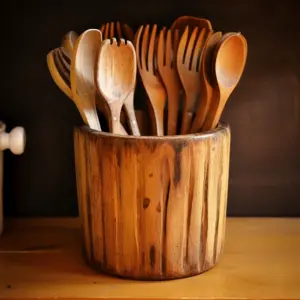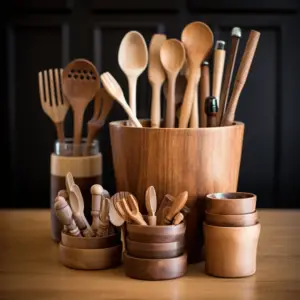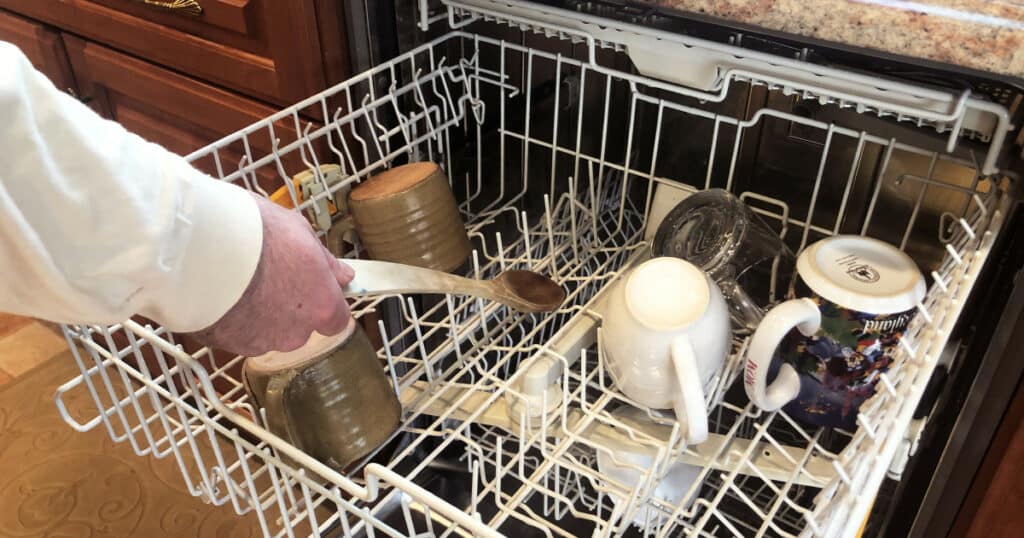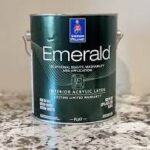Different camps feel differently on this issue with one group being vehemently against putting wooden spoons in the dishwasher while the other is firmly in support of the same.
The simple answer, however, is that it is NOT recommended to put wooden utensils in the dishwasher. While the consequences of doing so may not be immediate, they will eventually catch up.
Dishwashers are a convenient easy way to manage an otherwise time-consuming repetitive and redundant chore.
It goes without saying that the presence of this appliance in our daily lives frees us from the mundane business of cleaning by hand allowing us to occupy ourselves with more meaningful tasks of greater value.
Table of Contents
Their Wooden Utensils

Not because cleaning is worthless, but that it is a work that only achieves a goal in the moment. Dishwashing is done numerous times a day for little benefit. Cleaning dishes by hand is redundant, necessary, and repetitive.
Thus, some may think it superfluous to possess a top-of-the-line dishwasher simply to hand-wash some utensils. It’s senseless. Their middle ground is that the convenience of cleaning wooden utensils in the dishwasher outweighs the expense, which is likely just replacing them in the future. It’s hard to disagree. For individuals who value and want to preserve their wooden cutlery, this article is for you.
Why you Should not put Wooden Dishes in the Dishwasher
Wood is a biological material originating from a living organism, thus it degrades no matter what it is created from or how it is treated to keep it pristine. Due to food, soap, water, heat, and cooking rigor, wooden kitchen tools deteriorate faster.Wood loses its shine slowly, unlike plastic or metal, which will certainly outlast us. Many break long before deteriorating.
Older wooden cooking sticks discolor at the bowl or prongs where they come into touch with heat.It also gets the most cleaning to remove food and grease. The area is drier than the handles. This deteriorates.
Wooden Dishes in the Dishwasher
Subjecting your wooden dishes to the high temperatures of the dishwasher as well as the robust washing process will only hasten the deterioration of your wooden utensils.
High temperatures, soap, and water combined, plus the effect of surfactant during the rinse will continually strip your wooden items of the oils that maintain the sheen of wood.
They will slowly lose color and darken as oxidation of the raw surfaces takes over. The final look is not attractive.
But the appearance is only the beginning and with time, the dry wood warps and begins to splinter and crack.
Chopping boards which are many times a work of art and not just a useful item will break apart leaving ugly crevices. Now you have to replace them altogether.
If this is not a noteworthy expense then by all means use the dishwasher but if it is, avoid washing them in the dishwasher.
Wooden dishes today are made with a protective sealant to prevent this and keep the lovely face of wood for as long as possible but even this cannot protect wooden dishes from the harsh effects for infinity.
How to Clean Wooden Utensils

- Wash by hand using regular dish soap and warm water. Rinse and dry using a dry fluff-free towel or place them on a drying rack in the open. Only store them away in an enclosed space after they are completely moisture-free.
- Do not soak them in water for longer than just a few minutes to free dried food. Instead, place them in warm water to free foods that adhere as well as oils immediately after use and wash them soon after. This prevents you from having to scrub or worse, use knives and metal spoons to coarse stuck food from the wood.
- For chopping boards that have come into contact with meats, especially seafood, there may be an odor that you need to get rid of. Regular dish soap is often very effective against this if you do not let the chopping boards sit and dry.
- If dish soap does not work, use vinegar or a squeeze of lemon juice to get rid of the odor instead of the dishwasher. You can also put some baking soda in a warm water bath and wash your chopping boards to get rid of meat odors.
- Avoid disinfecting wood. Not only does it desiccate and damage wood, but it is pointless. Wood utensils despite being organic materials are characteristically unfriendly to bacteria growth, mildew formation, and rotting.
- Any microbial action on wood demands lengthy uninterrupted exposure to moisture, air, and heat. In other words for bacteria to grow on your chopping boards and cooking sticks, you must leave them for months in standing water at favorable temperatures like a fallen branch in the woods. Regular use, cleaning, and drying are too disruptive an environment for microbial activity.
Finally…
Wooden utensils like most other useful items in the home are not just functional they have sentimental and aesthetic value that any of us would like to preserve.
Some are simply decadent expensive dishes you buy for their exquisite build and to flex your opulence.
Unique vintage items, antique collectibles, or family heirlooms that cannot be replaced could be part of your culinary collection. You would want to preserve these at all costs and hopefully, pass them on to your children which is the making of family history. If so, kindly wash these by hand.


